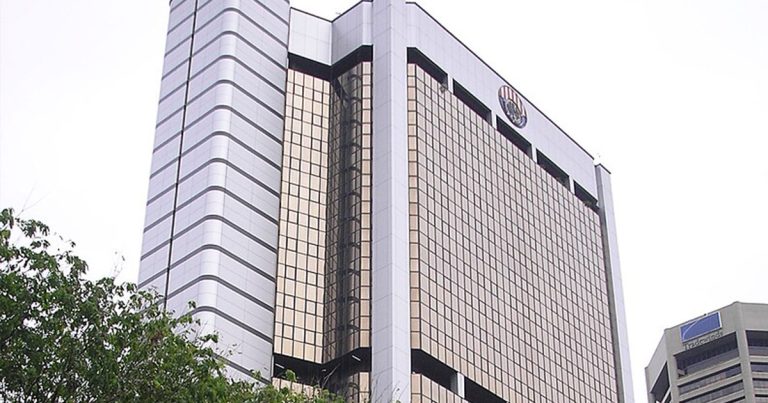13-2-2024 (KUALA LUMPUR) Siti (not her real name) embarked on her civil service journey over a decade ago, despite skepticism from friends who questioned her decision in light of the comparatively modest pay scale vis-à-vis the private sector. However, for the 39-year-old mother of two, the allure of the pension scheme outweighed financial considerations, inspired by her grandmother’s reliance on it following her grandfather’s demise, who served in the public works department.
In Malaysia, the demise of a civil servant enrolled in the pension scheme while in service entitles spouses and children under 21 to benefits.
Reflecting on her choice, Siti, who serves as an accountant, disclosed, “It was definitely one of the main reasons for me to sign up (with) the government although I knew that I would earn much less compared to my friends.” She estimates her potential earnings could double in the private sector.
However, pensions are slated for elimination for new civil servants from this year onwards as the government grapples with the escalating financial strain exacerbated by an ageing population and increased life expectancy.
Last month, Malaysia’s deputy prime minister, Ahmad Zahid Hamidi, proclaimed the cessation of the traditional pension system for incoming civil servants, stipulating that new hires would instead contribute to the Employers Provident Fund (EPF).
Presently, civil servants have the option to opt for either the pension scheme or the EPF.
Under the EPF, a mandatory savings and retirement programme, employees contribute 11 per cent of their monthly salaries while employers contribute a minimum of 12 per cent of the employees’ salaries.
Withdrawals from the EPF become feasible at the age of 55.
The discontinuation of pensions for new civil servants and politicians is perceived as a strategic move by Prime Minister Anwar Ibrahim to forestall impending fiscal insolvency. The surge in pension payouts over the last 15 years, forecasted to escalate further, poses a fiscal quandary. Pension disbursements escalated from RM11.5 billion (US$2.2 billion) in 2010 to nearly triple that amount, reaching RM31 billion last year. By 2040, an estimated RM120 billion (US$25.2 billion) would be necessitated, as disclosed by Mr Ahmad Zahid.
Although the government’s announcement necessitates parliamentary debate and constitutional amendments, existing civil servants remain unaffected by the proposed changes.
Nonetheless, the proposal has invited swift rebuke. Former Member of Parliament and deputy minister, Ong Kian Ming, denounced the lack of stakeholder engagement, while a teachers’ association voiced concerns regarding the impact on civil service appeal.
The move has also sparked allegations of discrimination against Malays, given that the majority of Malaysia’s 1.7 million civil servants are Malay.
Dr Azmi Hassan, a senior fellow at the Nusantara Academy for Strategic Research, observed, “There is definitely a political dimension to this. The issue is a very sensitive one as the majority of civil servants are Malay.” According to Retirement Fund Incorporated (KWAP), 71 per cent of pensioners are Malay, 13 per cent Chinese, and 7.8 per cent Indian.
Civil servants must serve a minimum of 10 years to qualify for a pension, which amounts to 20 per cent of their last-drawn salary. The lowest monthly pension stands at RM1,000 for 25 years of service, while individuals serving for 30 years are entitled to 60 per cent of their last-drawn salary. Additionally, pension scheme participants receive gratuity payments based on their tenure.
Dr Azmi Hassan highlighted, “Even though the salaries are lower, the guarantee of a pension is a reason why they are satisfied with the job. The pension system is considered to be lucrative once you retire.”
Opposition to the proposal has been vocal, with the Congress of Unions of Employees in the Public and Civil Services (Cuepacs) asserting the pension scheme’s superiority due to the prevailing low civil service wages.
Adnan Mat, Cuepacs president, stressed the imperative for adequate salaries to ensure decent living standards and foster retirement savings among civil servants.
Mohd Azizee Hassan, president of the Malaysian Muslim Teachers Association, cautioned that the removal of pensions for new civil servants could spur an exodus to the private sector, adversely impacting critical sectors such as education and health.
He advocated for transparent dialogue and salary adjustments if the EPF scheme becomes the sole option for civil servants.
Prime Minister Anwar affirmed the government’s commitment to enhancing civil service salaries. At the Perak Unity Government convention, he underscored the urgency of addressing the issue despite fiscal constraints.
Anwar underscored the imperative of a comprehensive remuneration system review, slated for completion within two months, before seeking Cabinet endorsement.
He underscored the protracted deliberation on pension reform, asserting its necessity to avert fiscal crisis and safeguard future generations.




